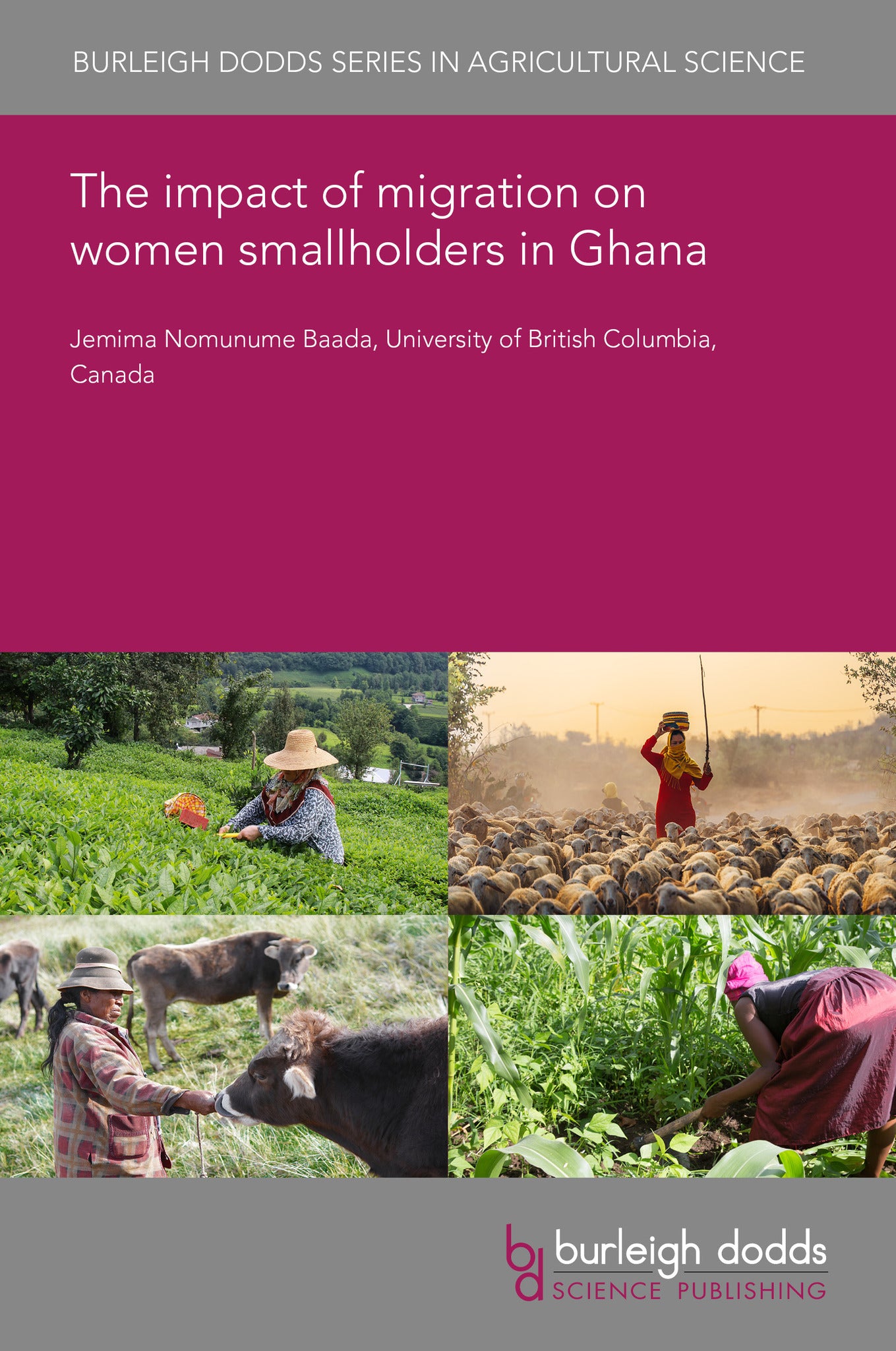We're sorry. An error has occurred
Please cancel or retry.
The impact of migration on women smallholders in Ghana

Some error occured while loading the Quick View. Please close the Quick View and try reloading the page.
Couldn't load pickup availability
- Format:
-
06 October 2025

This paper explores the effects of migration on women farmers in migration origins and destinations of Ghana, using 42 in-depth interviews and five focus groups. This exercise is timely and important as, first, many smallholder farmers are women, yet, they remain unrecognised and underpaid. Second, climate change threatens agrarian livelihoods and in response, smallholders migrate to areas with relatively better farming conditions as a coping strategy. In Ghana, many in the Upper West Region migrate to rural areas of the middle belt for livelihoods. Third and importantly, some women partake in these rural-rural migrations, while others do not. Despite this, there remains limited research on their experiences, hence this study. The findings show that women smallholders in origin and destination areas face gendered, economic and sociocultural marginalisation in farming and accessing resources. These findings help to further our understanding about the unique ways in which migration impacts women smallholders.

TECHNOLOGY & ENGINEERING / Agriculture / Sustainable Agriculture, Smallholdings, TECHNOLOGY & ENGINEERING / Agriculture / Animal Husbandry, TECHNOLOGY & ENGINEERING / Agriculture / Agronomy / Crop Science, Sustainable agriculture, Animal husbandry, Agronomy and crop production, Agricultural science

- 1 Introduction
- 2 Rural migration in Ghana
- 3 Studying the impact of migration on women smallholders
- 4 Findings: migration motives and patterns
- 5 Findings: impact of migration on women smallholders in the Upper West Region
- 6 Findings: impact of migration on women smallholders in the Middle Belt Region
- 7 Summary and conclusion: how migration affects women smallholders who stay and those who migrate
- 8 References



